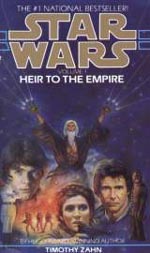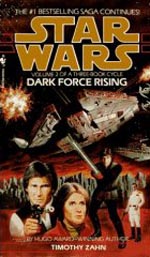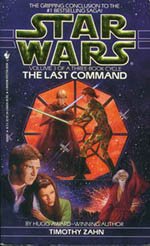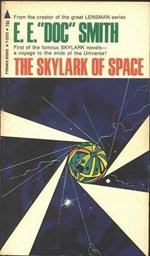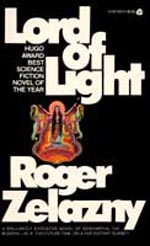Hot off the Thrawn Trilogy and still thirsting for more Star Wars I picked up some copies of Michael P. Kube-McDowells’ Black Fleet Crisis. Why the Black Fleet Crisis? Because it looked like the next chunk of significant Extended Universe continuity after the Thrawn Trilogy from an author that didn’t actively turn me off. (By which I mean Kevin Anderson.)
VOLUME 1: BEFORE THE STORM
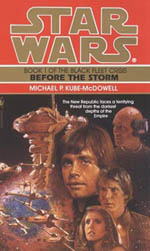 Unfortunately, despite doing my best to avoid the dregs of Star Wars licensing, I found the first volume of this trilogy to be very disappointing.
Unfortunately, despite doing my best to avoid the dregs of Star Wars licensing, I found the first volume of this trilogy to be very disappointing.
Why? Well, for starters, Princess Leia doing her best impression of Neville Chamberlain is a bizarre choice, and it quickly goes from simply not ringing true to being painfully stupid. (“Hitler is such a nice guy, it’s just that his hands are tied by his government.” “Hitler might be hiding a massive military force? I can’t believe it, so it must not be true.” “Hitler has derailed the negotiations, slandered my name, and blamed me for the deaths of a dozen people he killed? Then I must be doing something wrong!” “Hitler has killed 300,000 people in a genocidal purge? Cover it up. It’ll make me look bad if it comes out.”) Then she goes home to sulk for awhile before accusing the people around her of being sexist because they’ve been questioning her erratic and moronic behavior.
Kube-McDowell also seems to have some difficulty in keeping his eye on the ball. This entire volume, for example, actually consists of three entirely separate plot lines which essentially never interact with each other. Each plot is characterized by short little spurts of action interrupted frequently by expository lumps, many of which have only a tangential relationship to the action. Individual scenes will often start just AFTER a major event, the details of which will be backfilled a couple of paragraphs later through exposition.
The result is a completely dysfunctional pacing. So when you’re trying not to hurl the book across the room in response to Leia’s latest stupidity, you’re being jerked willy-nilly around the galaxy.
But, in some ways, this disjointed and schizophrenic structure may have been the trilogy’s salvation for me. If the only thing the first volume had offered me was Leia the Incompetent, I doubt I would have continued reading. But the other two plots, one involving Luke’s quest to find himself and the other involving Lando’s exploration of an alien ghost ship, both had enough interesting elements in them to keep me from completely disengaging from the novel.
(Even given that, though, if Leia hadn’t taken her brain off the shelf and put it back in her head where it belongs during the last twenty pages or so of the book, I probably would have given up on the trilogy.)
A few other thoughts here:
Unlike Zahn, Michael Kube-McDowell can’t quite capture the voices of the characters. The characters are true to form, but the words don’t quite sound right in their mouths; the rhythm of the dialogue doesn’t quite flow right. (There are two exceptions to this: Leia, who, as noted, isn’t true to form in the slightest. But also Luke, in quite the opposite direction: Kube-McDowell’s realizing of a Luke fifteen years older and possessed of a profound insight into the wisdom of the Force is simply captivating. It’s not the Luke of the movies, but it’s still Luke — and that’s a very impressive accomplishment.)
In reading this back-to-back with the Thrawn Trilogy, some of the most interesting details are those which conflict with one another: Zahn, for example, postulates that Yoda hung out in the swamp on Dagobah because of the proximity of the cave drenched in the energies of the dark side — a negative charge damping out his positive charge and allowing him to stay hidden from the Emperor and Vader. But Kube-McDowell chooses to focus, instead, on the common element between Yoda and Obi-Wan: Their hermitage. And he reads a great depth of meaning into that hermitage, and draws from it a philosophical revelation of what it means to be a powerful user of the Force.
And watching Luke struggle with the realization that he’s truly outstripped the teachings of his Masters and must now chart his own course is probably the strongest thing about this first volume, and the thing most responsible for getting me to crack the cover on volume two.
VOLUME 2: SHIELD OF LIES
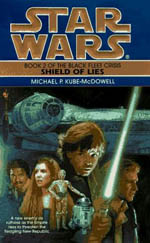 And I’m really glad I did crack the cover on volume two, because Shield of Lies is a massive improvement over the first volume.
And I’m really glad I did crack the cover on volume two, because Shield of Lies is a massive improvement over the first volume.
The structural problems of the first novel disappear as Kube-McDowell implements the simple expedient of splitting each of this three plots (Leia, Luke, and Lando) into separate parts and presenting them one at a time. The result looks more like a collection of three novellas than a novel, but if it makes for good reading, I’m not going to complain.
Most importantly, Leia’s veil of stupidity is lifted. And with Leia firing on full-thrusters, the political thriller at the heart of the Black Fleet Crisis goes from unrealized potential to page-turning intensity.
If this trilogy were published today, we’d be hearing endless gripes from people complaining that Kube-McDowell has tainted the Star Wars universe with an injection of modern politics. The Black Fleet Crisis, particularly in this second volume, looks an awful lot like the current war in Iraq . And after a quick glance at the copyright date dispels any suspicion of the novel’s possible influences, you can only sit back and appreciate the versimilitude and depth of Kube-McDowell’s narrative.
Where I struggled through the first volume in this trilogy, the second volume gave me a couple of sleep-deprived nights of “just one more chapter” reading. And when I finished the last page, I was immediatley compelled to snatch up the third volume and continue reading.
VOLUME 3: TYRANT’S TEST
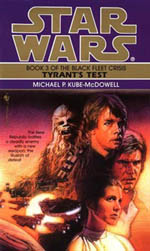 Nor was I disappointed. The third volume delivers on much the same level as the second.
Nor was I disappointed. The third volume delivers on much the same level as the second.
Perhaps the strangest thing about the trilogy’s third volume, however, is the revelation that one of the three plot threads in the trilogy does not, in fact, have any connection to the Black Fleet Crisis in any way, shape, or form. It could be completely excised from the trilogy and published as it’s own novella without any negative effect upon either itself or the rest of the trilogy. This is, needless to say, pretty bizarre.
Not that I’m complaining about the content of this particular sub-plot. It’s a solid piece of storytelling, and it manages to tell an honest-to-god science fiction story, albeit with Star Wars style.
It’s just odd that this novella, while it may be interspersed throughout the trilogy, doesn’t truly seem to belong to the trilogy.
This third volume also delivers a resounding and action-packed finale. Unfortunately, I can’t quite claim that it was an entirely satisfying finale, in large part due to the fact that — like Zahn’s Thrawn Trilogy — this conclusion seems to have large elements of deus ex machina and liberal coincidence strewn around.
But, in the final analysis, I’m really glad that I persevered through the tribulations of the first volume here, because the second and third volumes provide some great entertainment.
GRADES:
BEFORE THE STORM: C
SHIELD OF LIES: B
TYRANT’S TEST: B-
Michael P. Kube-McDowell
Published: 1996
Publisher: Bantam Spectra
Cover Price: $6.99
ISBNs: 0-55-357273-3 / 0-55-357277-6 / 0-55-357275-X
Buy Now!

